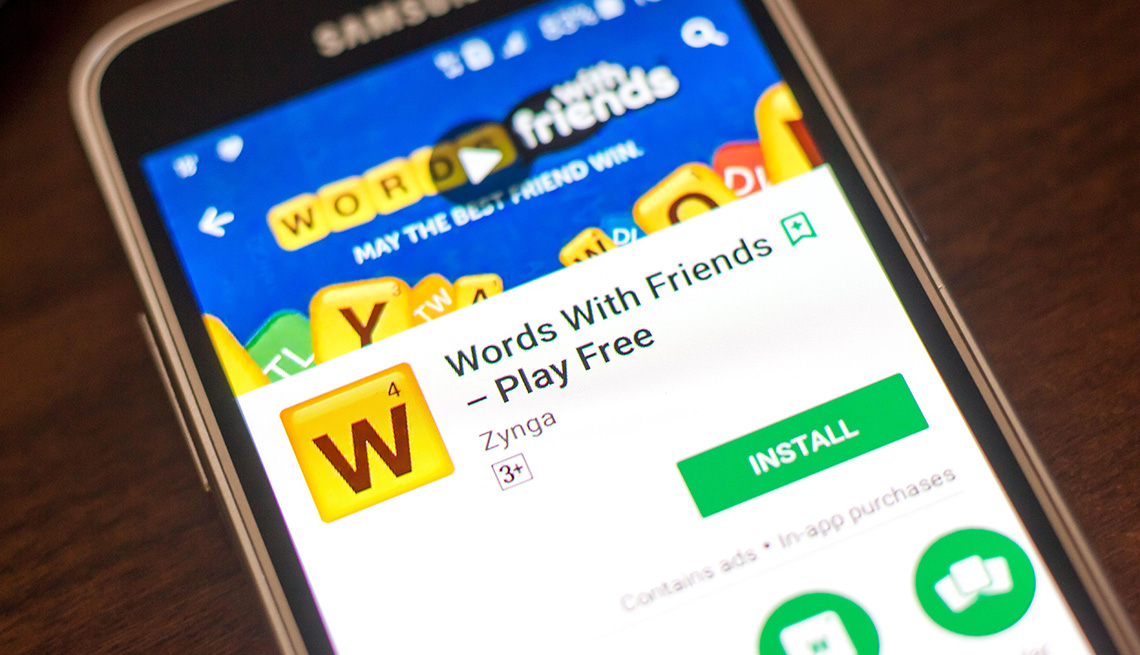
Romance scammers target victims on ‘words with friends’
- Select a language for the TTS:
- UK English Female
- UK English Male
- US English Female
- US English Male
- Australian Female
- Australian Male
- Language selected: (auto detect) - EN
Play all audios:

"Loneliness is insipid and does crazy things to people,” the detective says, “and makes them do things they wouldn't normally do." Victims can be in denial, too. In another
case he's probing, a woman in her 60s sent Bitcoin, a virtual currency difficult to trace, to a man she met on WWF. Her family contacted the detective and together they staged an
intervention that “finally convinced her that it's a scam,” he says, but the family still doesn't know how much money she's lost. HIS MOTHER MET A STRANGER At the University
of Southern California (USC), digital strategist Brad Berens grew interested in WWF scams when his mother, whom he calls “nobody's fool,” mentioned an odd experience while playing. She
met “Owen,” who described himself as a single father toiling on an off-shore oil rig near Istanbul. Digital Strategist Brad Berens, whose mother was contacted by a scammer playing WWF.
Courtesy of Brad Berens Berens is with the Center for the Digital Future at the USC Annenberg School for Communication and Journalism. When he investigated, he found many others who had
chatted with “Owen” had been scammed on an online forum for WWF players. “This is a classic long con,” says Berens, who wrote a blog post in 2018 about his mother's experience. While he
can't say for sure, he suspects the culprits are in a dark room full of men with a standard script and gigantic screens with multiple WWF games being played simultaneously. “Owen” and
the script could even be the products of artificial intelligence, he says. It may be that a bot starts a WWF game and after the other player answers basic questions, the con is handed over
to a human being. If true, it “means this scam potentially has global scale at what is effectively zero cost to the scammers,” Berens says. In Australia, government officials said losses
reported from WWF romance scams were nearly $430,000 in 2019 alone. Many readers who responded to Berens’ blog post were men who described being approached by beautiful, romantically
inclined young women with sob stories — and pleas for help. Amy Nofziger, who directs the AARP Fraud Watch Network Helpline (877-908-3360 toll-free), says WWF scams have been around for two
or three years. The scammers are “masters at making the human connection, and they use it to their advantage,” she says. So if you find yourself in an uncomfortable situation, ask yourself:
‘Why am I the only person who can help?'" Above all, consider the other person a stranger, she cautions, since “that is what they are." Getty Images 6 TIPS TO STAY SAFE ONLINE
Digital strategist Brad Berens with the University of Southern California became intrigued with Words With Friends scams when his mother encountered a stranger online. He cautions people
not to believe something just because it’s on the web. Even with his two teen daughters, Berens says he’s worked to “make them skeptical of what they see online.” People, regardless of age,
should heed his advice. 1. Don’t play online games with people you don’t know in real life. 2. If you do play with strangers — and you shouldn’t — don’t share personal information. 3. Never
send money to people you don’t know. 4. If you’re tempted to send money to a stranger — and you shouldn’t — first have a “sanity check” with a friend or relative. If you’re too embarrassed
to talk to a trusted person, your gut may be telling you the person seeking your cash isn’t who he or she claims to be. 5. Research your case. Try the myth-busting site Snopes.com, or copy
some of the message you’ve received, paste the text in Google, hit “return” and see if it shows up elsewhere. 6. Change your profile picture. Berens changed his mom’s profile picture to one
of his dog, Ace, a Pembroke Welsh corgi. So far, nobody has tried to scam the pup.
